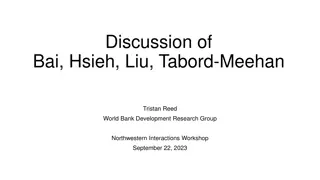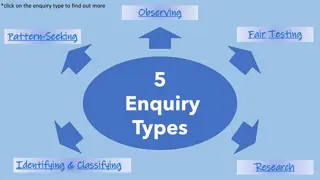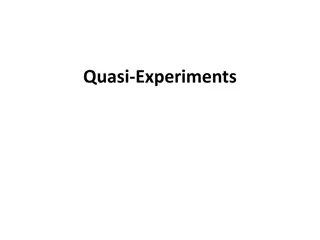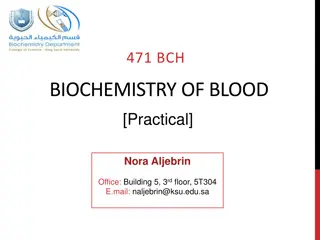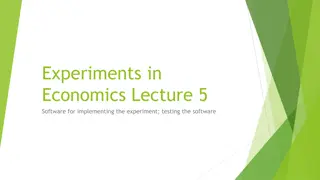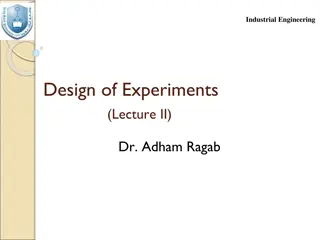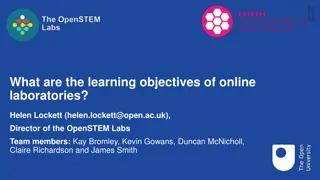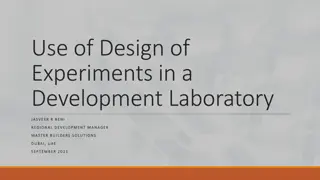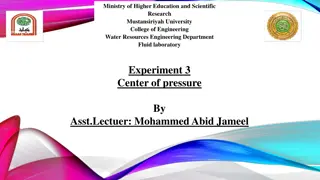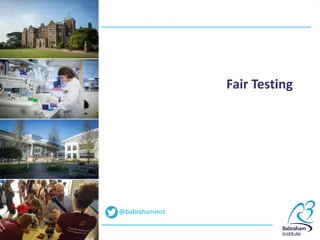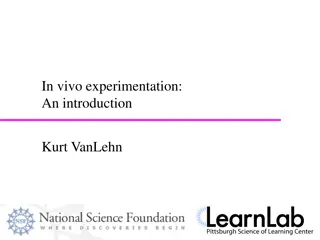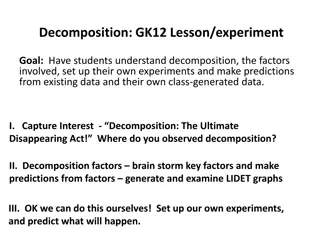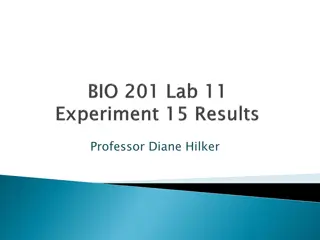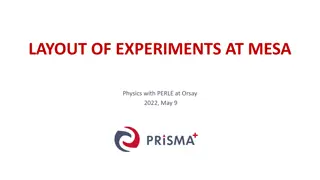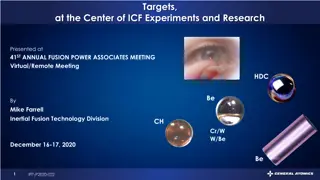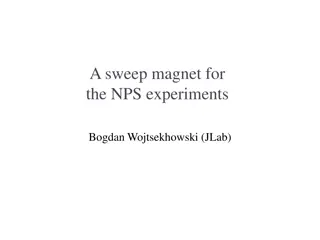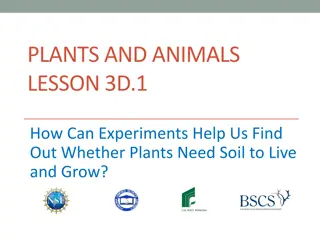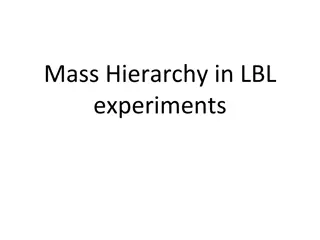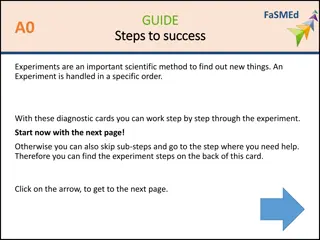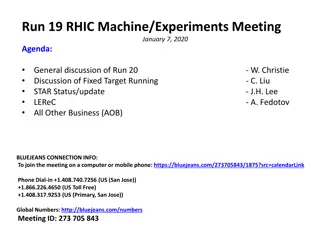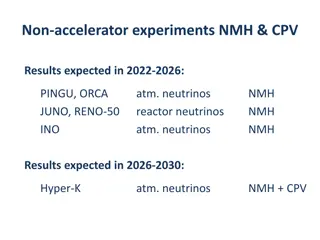Evaluation of feedstuffs by digestion experiments
The evaluation of feedstuffs through digestion experiments, including physical, chemical, and biological evaluations. It also discusses the measurement of digestibility and the different methods used for determining digestibility coefficients.
2 views • 49 slides
Engineering as Social Experimentation: Importance and Learnings
Engineering as social experimentation involves engineers conducting experiments and tests at various stages of product or process design to evaluate outcomes and make necessary modifications. This process is crucial for innovation and improvement in the field of engineering, emphasizing the importan
0 views • 50 slides
Innovations in Pixel Detector Technology for Photon Science
Technologies and advancements in pixel detector development for photon science applications are showcased in this content. Topics discussed include balancing gain and dynamic range in hybrid pixel detectors, performance assessments of integrating pixel detectors, and strategies for photon detection
4 views • 21 slides
Understanding Binomial Experiments and Probability Calculations
Binomial experiments have specific conditions to be met, such as fixed trials and two outcomes. Symbols and notations help represent these experiments. Calculating probabilities of successes in trials involves using functions like binompdf and binomcdf. Examples like determining defective switches o
11 views • 8 slides
Physics 2BL Laboratory: Measurements, Error Analysis & Data Interpretation
This Physics 2BL laboratory course focuses on measurements of physical quantities, error analysis, and interpretation of data. Students learn how scientists create models of natural phenomena and the practical aspects of conducting scientific experiments. Pre-requisites include Physics 2A, 4A or equ
0 views • 31 slides
Discussion of Randomized Experiments and Experimental Design Challenges
Randomized experiments face statistical power challenges due to rare outcomes and high variance. Stratifying randomization can help control for correlated residual variance based on baseline values of outcomes. Implications for applied economists include addressing attrition and treatment effect het
0 views • 6 slides
Cryogenic Heated Tube Flow Boiling Experiments with Generalized Fluid System Simulation Program
Modeling of cryogenic heated tube flow boiling experiments of nitrogen and methane using the Generalized Fluid System Simulation Program. The research conducted by Michael Baldwin and co-authors from NASA MSFC, NASA GRC, and Purdue University explores the motivation, background, and findings related
0 views • 18 slides
Understanding Mendel's Experiments and Principles of Genetics
Delve into the pioneering work of Gregor Mendel, the father of genetics, as he conducted groundbreaking experiments with pea plants, identified key principles of genetics, and introduced the concept of dominant and recessive traits. Explore how Mendel's work laid the foundation for our understanding
4 views • 23 slides
History of Molecular Biology: Key Experiments and Discoveries
This content covers the introduction and brief history of molecular biology, highlighting key experiments such as the work of Freidrich Miescher, Griffith's transformation experiment, and Avery-MacLeod-McCarty's proof of DNA as the genetic material. It explores the early understanding of macromolecu
0 views • 17 slides
Chemistry Regents June 2022 - Subatomic Particles and Atomic Experiments
Understanding subatomic particles, atomic experiments, and spectroscopy concepts in chemistry for the June 2022 Regents exam. Learn about particle charges, gold foil experiment conclusions, and bright-line spectrum elements.
0 views • 167 slides
Exploring Different Enquiry Types in Science Education
Observation, fair testing, and research are essential enquiry types in science education that allow students to make observations, conduct fair experiments, and engage in research to explore and understand various phenomena. Observation involves identifying and measuring events over time, fair testi
1 views • 10 slides
Understanding Quasi-Experiments in Research
Quasi-experiments are research studies that resemble experiments but do not involve random assignment of participants to treatment groups. This approach is taken when random assignment is challenging or when ethical considerations come into play. Unlike true experiments, quasi-experiments can provid
0 views • 15 slides
Biochemistry of Blood Practical Course Overview
This biochemistry of blood practical course involves various experiments focusing on blood components such as plasma, serum, proteins, enzymes, blood groups, hemoglobin, glucose levels, and more. The course outline includes detailed experiments, marking distribution, guidelines for writing scientifi
3 views • 6 slides
Software Options for Implementing Economic Experiments
Explore various software tools like Z-tree, Visual Studio, and Python that can be used to implement and conduct economic experiments effectively. Learn about the benefits and trade-offs of different software options, and discover online platforms like O-tree and Z-tree unleashed for running experime
0 views • 17 slides
Introduction to Industrial Engineering Statistics and Experiments
Delve into the realm of Industrial Engineering through Statistics and Design of Experiments in this comprehensive lecture series by Dr. Adham Ragab. Explore the practical applications of statistics, differentiate between population and sample, calculate statistical variables, and understand the sign
0 views • 25 slides
Advanced Fission Experiments at University of Michigan
The University of Michigan, under the guidance of Dr. Sara A. Pozzi, conducts cutting-edge fission experiments leveraging organic scintillation detectors. These detectors offer advantages such as nanosecond-scale response times, energy proportionality, and scalability. The experiments focus on impro
0 views • 4 slides
Understanding the Basics of Experiments in Social Sciences
Delve into the world of experiments in social sciences with a focus on experimental designs, ethical considerations, and intriguing questions like predicting helping behavior in emergencies. Explore how studying helping behavior in experiments can shed light on complex human interactions and behavio
1 views • 30 slides
Understanding the Objectives of Online Laboratories in STEM Education
Online laboratories offer interactive experiments over the internet, providing remote and virtual practical experiences in STEM education. The OpenSTEM Labs project aims to explore various activities and outcomes in experiments, focusing on classification schemes and learning objectives. The purpose
0 views • 17 slides
Utilizing Design of Experiments in Development Laboratories
Design of Experiments (DoE) is a crucial methodology in product development laboratories, enabling faster analysis of multiple factors and interactions. This approach accelerates the product development process and enhances competitiveness in the industry. By incorporating statistical tools and well
0 views • 11 slides
Advanced Plasma Control Systems in Fusion Experiments
The construction of control systems for high-performance plasma with limited actuators or diagnostics is crucial for ongoing fusion experiments like ITER and DEMO. This involves developing control logic, categorizing various parameters, and understanding actuator systems. Multiple control experiment
2 views • 25 slides
Understanding Hovercrafts: Principles, Experiments, and Applications
Explore the fascinating world of hovercraft technology through detailed explanations, experiments, and insights on how these vehicles work. From the basic concepts and terms to practical experiments you can try at home, uncover the science behind hovercrafts and their versatile capabilities. Dive in
0 views • 17 slides
Understanding the Center of Pressure in Fluid Mechanics Experiments
The concept of center of pressure in fluid mechanics is explored through experiments to find water pressure forces on surfaces immersed in water. Theoretical background equations for partial and complete immersion are provided, along with objectives related to determining water pressure forces and c
0 views • 13 slides
Understanding Fair Testing in Experiments
Explore the concept of fair testing in scientific experiments, learning about variables, controls, and the importance of unbiased testing methods. Discover how to design fair experiments and analyze results effectively.
0 views • 18 slides
Overview of In Vivo Experimentation in Educational Research
This introduction to in vivo experimentation by Kurt VanLehn covers the motivation and definition of in vivo experiments, examples, distinguishing features from other experiments, and popular experimental methods like laboratory and classroom experiments. The content addresses the need for external
0 views • 46 slides
Ultrafast Two-Electron Correlations From Metal Needle Tips in Photoemission Experiments
Study explores ultrafast two-electron correlations from metal needle tips during photoemission experiments using femtosecond laser pulses. The evolution of photoemission experiments at gases and surfaces, multi-electron dynamics, experiment setups, energy anti-correlation, and potential applications
0 views • 11 slides
Advances in Experimental Particle Physics and Metrology Technologies
This collection of images and text highlights the essential aspects of fundamental physics experiments, particle physics detectors, and the Atlas ITk project. It also focuses on the importance of metrology for physics and satellite experiments, with a specific emphasis on laser technologies. The con
0 views • 11 slides
Understanding Decomposition: Experiments & Predictions for Students
Engage students in understanding decomposition through hands-on experiments, predictions based on factors, and analysis of data. Explore various decomposition examples, set up experiments with different variables, and analyze outcomes to enhance comprehension. Utilize resources like LIDET graphs and
0 views • 10 slides
Microbiology Laboratory Experiments Overview
This overview showcases various microbiology laboratory experiments conducted to examine the physiology of bacteria, enzymatic activities, and biochemical reactions. It includes experiments on Phenol Red Dextrose Broth, Phenol Red Lactose Broth, Nitrate Broth, Tryptone Broth, and more. The provided
0 views • 26 slides
Overview of Dark Matter Physics and Neutrino Experiments
The search for dark matter (DM) is a crucial challenge across various physics fields due to the wide range of predicted masses and uncertainties. DM candidates include stable, neutral, cold, and weakly interacting particles, with potential types like axions, SIMP-like, and WIMP-like DM. Neutrino exp
0 views • 9 slides
Latest Developments in Physics Experiments at MESA Orsay 2022
Developments at MESA include the layout of experiments, status of the 5 MeV Injector, operational modes, fixed target experiments, challenges in the EB-Experiment P2, procurement updates, energy recovery mode in MAGIX, and upcoming spectrometer deliveries. Exciting advancements and projects are unde
0 views • 16 slides
Advances in Target Manufacturing for Inertial Confinement Fusion Experiments
Target manufacturing for inertial confinement fusion (ICF) experiments is a crucial focus area, with recent advancements highlighting the need for precision and detail in target design and fabrication. The presentation at the 41st Annual Fusion Power Associates Meeting emphasized the importance of m
0 views • 13 slides
Cutting-edge Nuclear Physics Experiments and Kinematics Insights
Explore the latest developments in nuclear physics experiments, featuring advanced equipment like Asweep magnet and detailed kinematics analysis of experiments such as SI pion, DVCS, and WACS. Discover solutions to field problems and innovative solutions using images and descriptions from the NPS bi
0 views • 15 slides
Understanding Multi-Stage Probability Experiments
Explore single-stage and multi-stage probability experiments in contemporary mathematics. Learn how to determine sample spaces of experiments using tree diagrams, tables, and outcomes. Discover the concepts of independence and dependence between stages in multi-stage experiments through practical ex
0 views • 18 slides
Understanding the Role of Soil in Plant Growth Experiments
Explore how experiments help determine if plants need soil to thrive, delving into the essential components for plant growth and the methods used to study their requirements. Engage in predicting outcomes and designing experiments to test the necessity of soil for plant life.
0 views • 12 slides
Insights into Mass Hierarchy Determination in Long-Baseline Neutrino Experiments
Combining appearance probabilities of electron and anti-electron neutrinos in long-baseline experiments can help determine the mass hierarchy, with ongoing experiments collecting significant data by 2020. Analyses point to CP violation possibilities, with updates expected in Neutrino2016. The capabi
0 views • 6 slides
Understanding Special Topics in Design: Factorial Experiments and Fractional Designs
This content delves into the world of factorial designs used in design experiments to identify important factors and interactions. It explores 2k full factorial designs and their application in screening potential factors. Additionally, the content discusses 2k-p fractional factorial designs and the
0 views • 19 slides
Steps to Success: Conducting Scientific Experiments
Scientific experiments play a crucial role in discovering new things. Follow a specific order of steps outlined in the guide to successfully conduct experiments. Begin by understanding biological phenomena, formulating hypotheses, planning, performing experiments, observing results, and drawing conc
0 views • 29 slides
Summary and Updates from RHIC Machine Experiments Meeting
General discussion and updates from the Run 19 RHIC Machine Experiments Meeting held on January 7, 2020, including discussions on Run 20, Fixed Target Running for STAR, LEReC status updates, and other business matters. Key points covered include the schedule assumptions, interleaving LEReC commissio
0 views • 10 slides
Overview of Non-Accelerator Neutrino Experiments and Programs
Non-accelerator experiments in the field of neutrino physics are expected to yield significant results between 2022 and 2030. Projects like PINGU, ORCA, JUNO, RENO-50, INO, Hyper-K, and DUNE aim to study neutrino mass hierarchy, CP violation, and non-oscillation phenomena. The design and constructio
0 views • 10 slides
The Power of Experiments: Learnings from Obama's Million Dollar Campaign
Businesses, governments, and campaigns like Obama's use experiments to make data-driven decisions. Discover how a simple experiment helped Obama raise $60 million, emphasizing the significance of randomized controlled experiments and real-world examples in optimizing outcomes.
0 views • 28 slides




